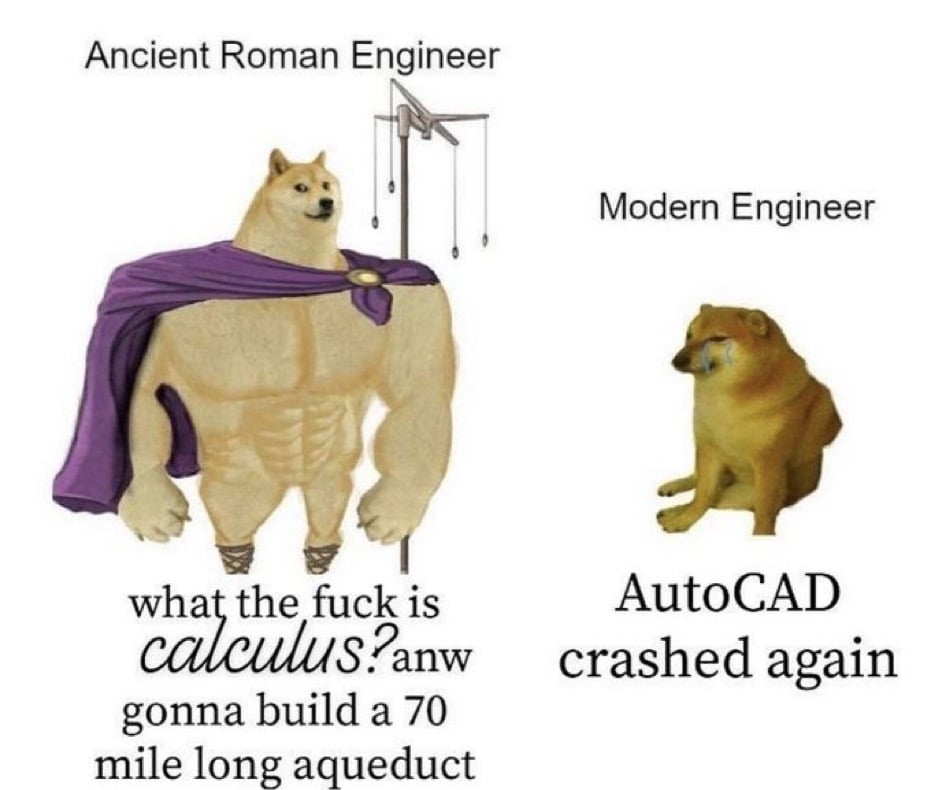this post was submitted on 03 Oct 2024
307 points (96.9% liked)
196
16501 readers
2090 users here now
Be sure to follow the rule before you head out.
Rule: You must post before you leave.
founded 1 year ago
MODERATORS
you are viewing a single comment's thread
view the rest of the comments
view the rest of the comments

Calculus is a specific field of mathematics, mostly to do with limits, integrals and derivatives. Those all feature very heavily in working out loads and stresses.
But it's unfair to say the Roman didn't have calculus. It wasn't formal calculus, but they absolutely had mathematics, and the Greeks worked out the exhaustion method a century before the Via Appia was even started.
You don't need calculus to do some very impressive building, you can go very very far with experience, rules of thumb and basic maths. Hell, ask any civil engineer and they'll gladly show you some common formula that makes physicists cry.
Put simply, you don't need to know of, or what a certain field of math is to be able to apply the different fundamentals of it.
As an example. You ever see a basketball player bring out a chalkboard to calculate the trajectory, mass, spin, or force to throw the ball to get it in the basket? No. Over time they all eventually create a physics model in their heads and are able to subconsciously calculate all of that with relative accuracy based on experience, training, and practice. Yet, a lot of those players never took a lick of physics.
Do you happen to know any civil engineers, I would like to see these formulas
when we approximate g to 10 they weep.
π=3